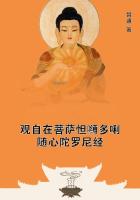There are a few editor men with whom I am privi- leged to come in contact. It has not been long since it was their habit to come in contact with me. There is a difference.
They tell me that with a large number of the manuscripts that are submitted to them come advices (in the way of a boost) from the author asseverating that the incidents in the story are true. The des- tination of such contributions depends wholly upon the question of the enclosure of stamps. Some are returned, the rest are thrown on the floor in a corner on top of a pair of gum shoes, an overturned statu- ette of the Winged Victory, and a pile of old maga- zines containing a picture of the editor in the act of reading the latest copy of Le Petit Journal, right side up - you can tell by the illustrations. It is only a legend that there are waste baskets in editors' offices.
Thus is truth held in disrepute. But in time truth and science and nature will adapt themselves to art.
Things will happen logically, and the villain be dis- comfited instead of being elected to the board of directors. But in the meantime fiction must not only be divorced from fact, but must pay alimony and be awarded custody of the press despatches.
This preamble is to warn you off the grade cross- ing of a true story. Being that, it shall be told sim- ply, with conjunctions substituted for adjectives wherever possible, and whatever evidences of style may appear in it shall be due to the linotype man.
It is a story of the literary life in a great city, and it should be of interest to every author within a 20- mile radius of Gosport, Ind., whose desk holds a MS. story beginning thus: "While the cheers following his nomination were still ringing through the old courthouse, Harwood broke away from the congrat- ulating handclasps of his henchmen and hurried to Judge Creswell's house to find Ida."
Pettit came up out of Alabama to write fiction.
The Southern papers had printed eight of his stories under an editorial caption identifying the author as the son of "the gallant Major Pettingill Pettit, our former County Attorney and hero of the battle of Lookout Mountain."
Pettit was a rugged fellow, with a kind of shame- faced culture, and my good friend. His father kept a general store in a little town called Hosea. Pettit had been raised in the pine-woods and broom-sedge fields adjacent thereto. He had in his gripsack two manuscript novels of the adventures in Picardy of one Gaston Laboulaye, Vicompte de Montrepos, in the year 1329. That's nothing. We all do that.
And some day when we make a hit with the little sketch about a newsy and his lame dog, the editor prints the other one for us -- or "on us," as the say- ing is -- and then -- and then we have to get a big valise and peddle those patent air-draft gas burners.
At $1.25 everybody should have 'em.
I took Pettit to the red-brick house which was to appear in an article entitled "Literary Landmarks of Old New York," some day when we got through with it. He engaged a room there, drawing on the general store for his expenses. I showed New York to him, and he did not mention how much narrower Broadway is than Lee Avenue in Hosea. This seemed a good sign, so I put the final test.
"Suppose you try your band at a descriptive arti- cle," I suggested, "giving your impressions of New York as seen from the Brooklyn Bridge. The fresh point of view, the -- "
"Don't be a fool," said Pettit. "Let's go have some beer. On the whole I rather like the city."
We discovered and enjoyed the only true Bohemia.
Every day and night we repaired to one of those palaces of marble and glass and tilework, where goes on a tremendous and sounding epic of life. Valhalla itself could not be more glorious and sonorous. The classic marble on which we ate, the great, light- flooded, vitreous front, adorned with snow-white scrolls; the grand Wagnerian din of clanking cups and bowls the flashing staccato of brandishing cut- lery, the piercing recitative of the white-aproned grub-maidens at the morgue-like banquet tables; the recurrent lied-motif of the cash-register -- it was a gigantic, triumphant welding of art and sound, a deafening, soul-uplifting pageant of heroic and em- blematic life. And the beans were only ten cents.
We wondered why our fellow-artists cared to dine at sad little tables in their so-called Bohemian restau- rants; and we shuddered lest they should seek out our resorts and make them conspicuous with their pres- ence.
Pettit wrote many stories, which the editors re- turned to him. He wrote love stories, a thing I have always kept free from, holding the belief that the well-known and popular sentiment is not properly a matter for publication, but something to be privately handled by the alienists and florists. But the editors had told him that they wanted love stories, because they said the women read them.
Now, the editors are wrong about that, of course.
Women do not read the love stories in the magazines.
They read the poker-game stories and the recipes for cucumber lotion. The love stories are read by fat cigar drummers and little ten-year-old girls. I am not criticising the judgment of editors. They are mostly very fine men, but a man can be but one man, with individual opinions and tastes. I knew two associate editors of a magazine who were won- derfully alike in almost everything. And yet one of them was very fond of Flaubert, while the other preferred gin.
Pettit brought me his returned manuscripts, and we looked them over together to find out why they were not accepted. They seemed to me pretty fair stories, written in a good style, and ended, as they should, at the bottom of the last page.
They were well constructed and the events were marshalled in orderly and logical sequence. But I thought I detected a lack of living substance -- it was much as if I gazed at a symmetrical array of presentable clamshells from which the succulent and vital inhabitants had been removed. I intimated that the author might do well to get better acquainted with his theme.















